Highlights from Mathematics, Physical and Applied Sciences Communities
Published in Earth & Environment, Research Data, and Computational Sciences

Celebrating World Wetlands Day and Love Data Week in February, the Mathematics, Physical, and Applied Sciences Communities bring forward key research addressing environmental sustainability, artificial intelligence, and data-driven innovations. Here, we explore studies on wetland ecosystems, Arctic permafrost thaw, AI in ethics, and smart urban logistics, and join the conversation on the latest scientific advancements.
World Wetlands Day
Did you know that 2 February is World Wetlands Day? According to the United Nations, although Wetlands cover only around 6% of the Earth’s land surface, they are home to 40% of all plant and animal species. Wetland biodiversity is essential for our health, food supply, tourism, and more. These ecosystems are critical for flood control and water purification, supporting a billion people worldwide.
How do wetlands contribute to climate change?
What challenges do researchers face when studying the complex relationship between wetland carbon dynamics and global warming? In @Yuting Liang's Behind the Paper post, she reveals that CH₄ and CO₂ emissions from wetlands are strongly influenced by soil carbon-to-nitrogen ratios, shaping their response to rising temperatures. Their findings highlight the key role of soil organic matter decomposition in regulating greenhouse gas emissions, offering new insights into wetland carbon-climate feedback. This study was published in Nature Geoscience. Read more about the influence of Wetland carbon dynamics in the Earth and Environment Community.
Love Data Week
Love Data Week, which is celebrated from the 10th until 14th of February, aims to raise awareness and foster a community around research data. The Springer Nature’s Research Data Community provides a space for researchers, data professionals and enthusiasts to discuss ideas, share best practices and promote data sharing. Why not take a look during Love Data Week?
Tracking Water in a Changing Climate: Meet GRAiCE
In a blog post looking at behind the scenes of their recent paper in Scientific Data , @Irene Palazzoli , @Serena Ceola and @Pierre Gentine introduce GRAiCE, a new machine-learning dataset introduced in a new article, which tracks global freshwater storage changes from 1984 to 2021. By filling gaps in satellite data, GRAiCE helps us understand how climate extremes like droughts and floods impact water resources and will inspire further research and action toward a more sustainable management of freshwater resources, building resilience against future water challenges. Discover the story behind GRAiCE in this post!
Looking back at January
Permafrost Thaw: A Growing Risk for Arctic Communities
A Behind the Paper post written by @Johanna Scheer , @Susanna Gartler and @Alexandra Meyer explore the work behind their recent publication detailing how permafrost thaw threatens Arctic regions damaging infrastructure, disrupting supplies, and endangering water and food security. Scientists highlight urgent risks and the need for adaptation. This study is published in Communications Earth & Environment. Find out more about the threat of permafrost thaw.
Could Thinking Robots Shape the Future of AI Ethics?
A Scientific Reports study has shown that a robot’s inner speech can enhance human practical wisdom, fostering trust and ethical reflection in caregiving. Could thinking robots shape the future of AI ethics? @Arianna Pipitone shares a behind the scenes look at this work with the Research Communities. Read the full story on how robots can support ethical decision making.
Drones for Smarter Urban Logistics
A behind-the-scenes story shared by @Dr. Jagannath Roy explores drone-based delivery in Kochi, leveraging its waterways for efficiency and sustainability. Using a Fuzzy Multi-Criteria Decision-Making framework, the authors evaluated innovative logistic models, with barge-based drone systems emerging as a game changer. This research was published in Environment, Development, and Sustainability. Discover more about smarter urban freight solutions in the Mechanical Engineering Community.
Read the blog posts to learn more about the studies and join the discussion! What would you ask the teams behind these fascinating studies?
- Wetlands play a vital role in our environment, what research or insights do you find most interesting on this topic?
- Do you know of any interesting data research?
Share your thoughts in the comments or share with a colleague by tagging them, or dropping a link to discover more meaningful insights into these studies. We also warmly invite you to explore more fascinating research stories in the Behind the Paper channel.
Follow the Topic
-
Scientific Data

A peer-reviewed, open-access journal for descriptions of datasets, and research that advances the sharing and reuse of scientific data.
-
Scientific Reports

An open access journal publishing original research from across all areas of the natural sciences, psychology, medicine and engineering.
-
Nature Geoscience

A monthly multi-disciplinary journal aimed at bringing together top-quality research across the entire spectrum of the Earth Sciences along with relevant work in related areas.
-
Communications Earth & Environment

An open access journal from Nature Portfolio that publishes high-quality research, reviews and commentary in the Earth, environmental and planetary sciences.
-
Environment, Development and Sustainability

This is an international and multidisciplinary journal covering all aspects of the environmental impacts of socio-economic development.
Related Collections
With Collections, you can get published faster and increase your visibility.
Obesity
Publishing Model: Hybrid
Deadline: Apr 24, 2026
Tropical cyclones impacts and preparedness
Publishing Model: Hybrid
Deadline: Mar 31, 2026
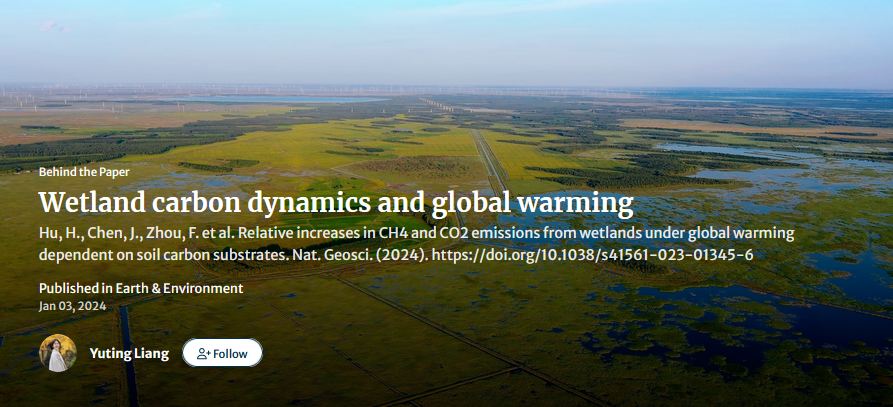
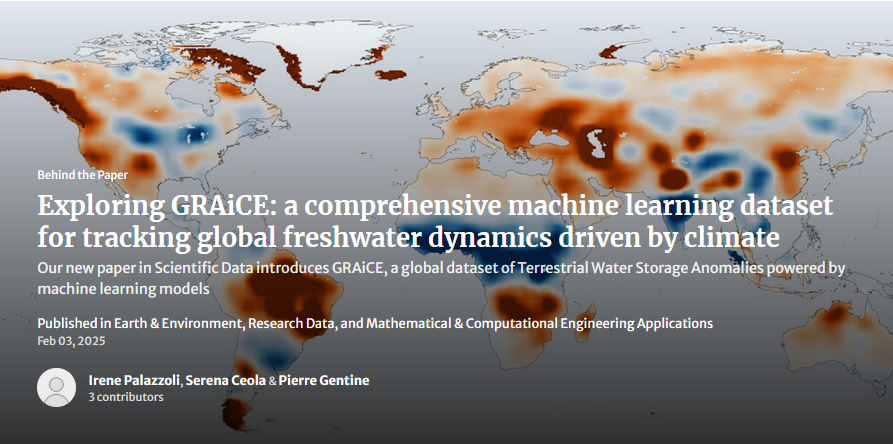
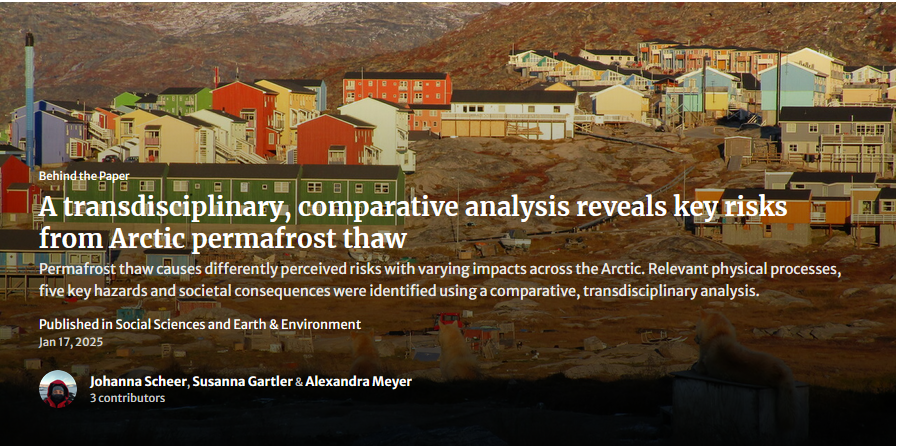
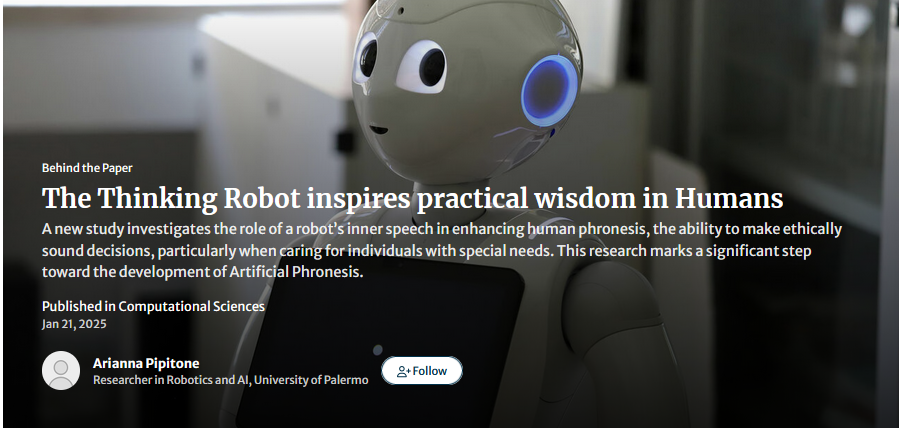
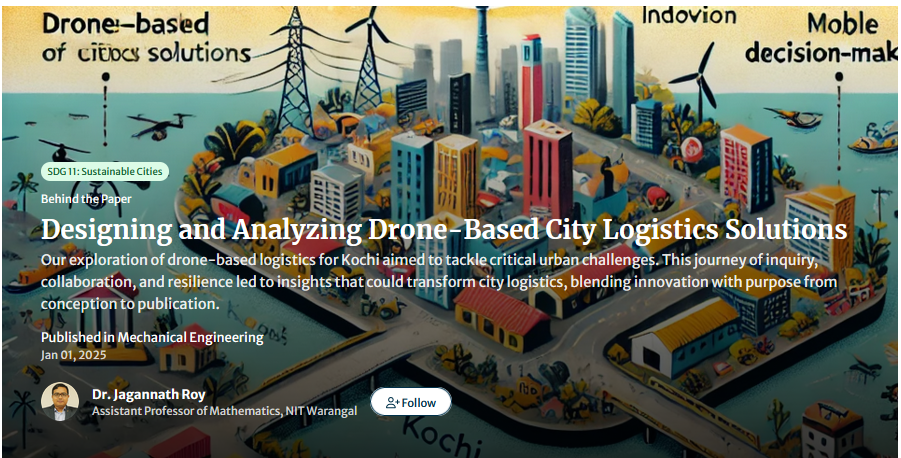
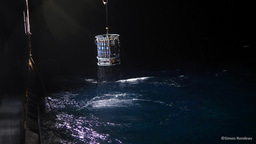

Please sign in or register for FREE
If you are a registered user on Research Communities by Springer Nature, please sign in